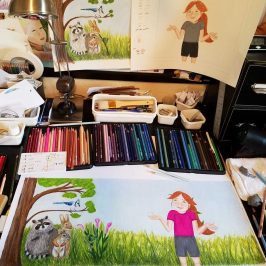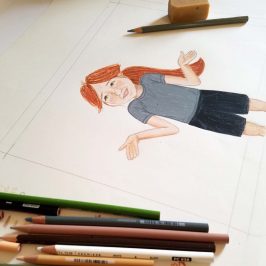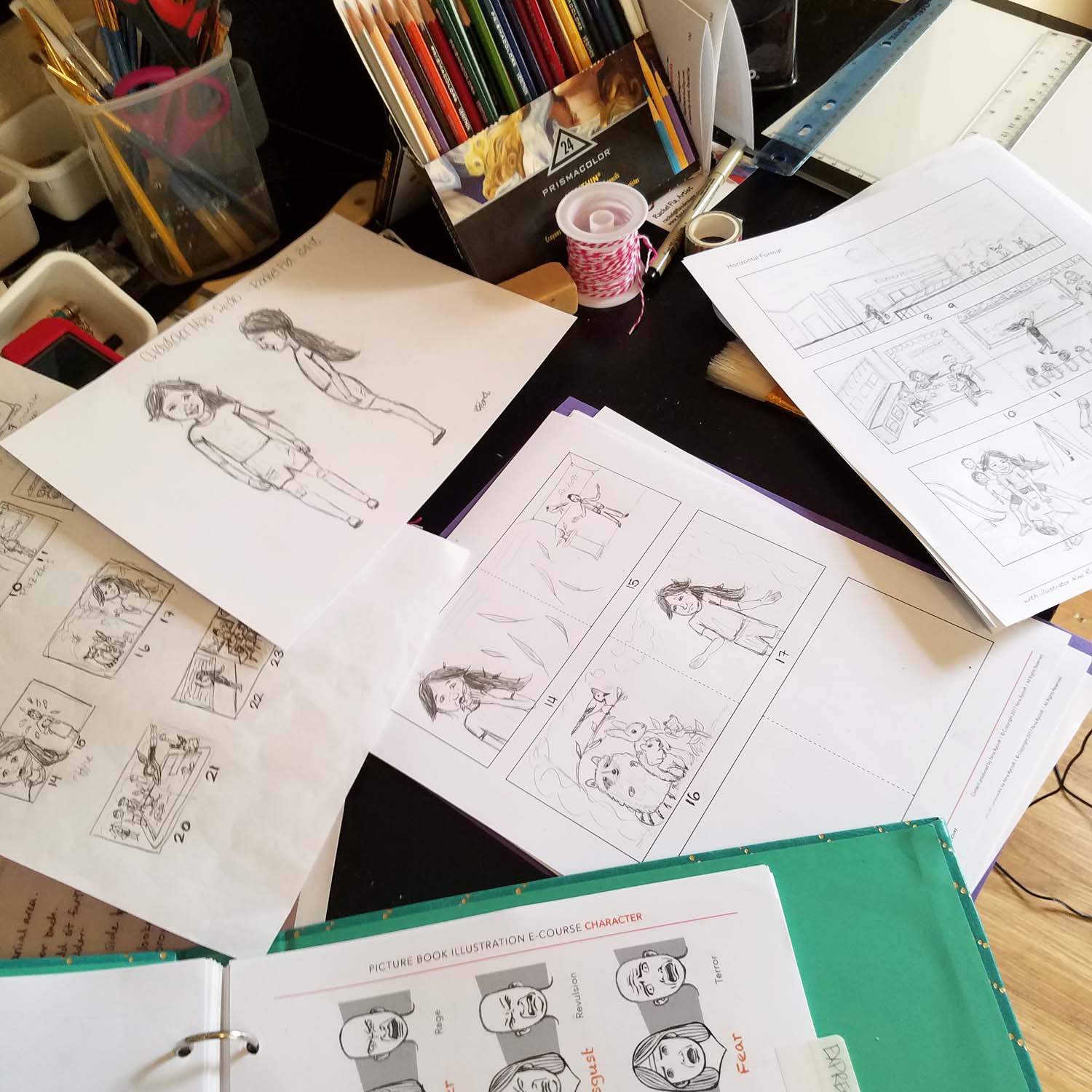
If you read my previous blog post on Illustrating a Children’s Book, I covered Character Studies. In this post, I’ll cover Page Mapping and Thumbnails. There are several layers to story mapping including page breaks, thumbnails, and storyboards.
Page Mapping
The most important part of illustrating a children’s book is interpreting the manuscript. In this step I will read the manuscript multiple times to get a feel for the characters and the mood of the story, and more importantly for illustrating–how it breaks down on the pages. I will look for a flow of text that also captures the emotions of the manuscript, while thinking of how the pages look to the reader.
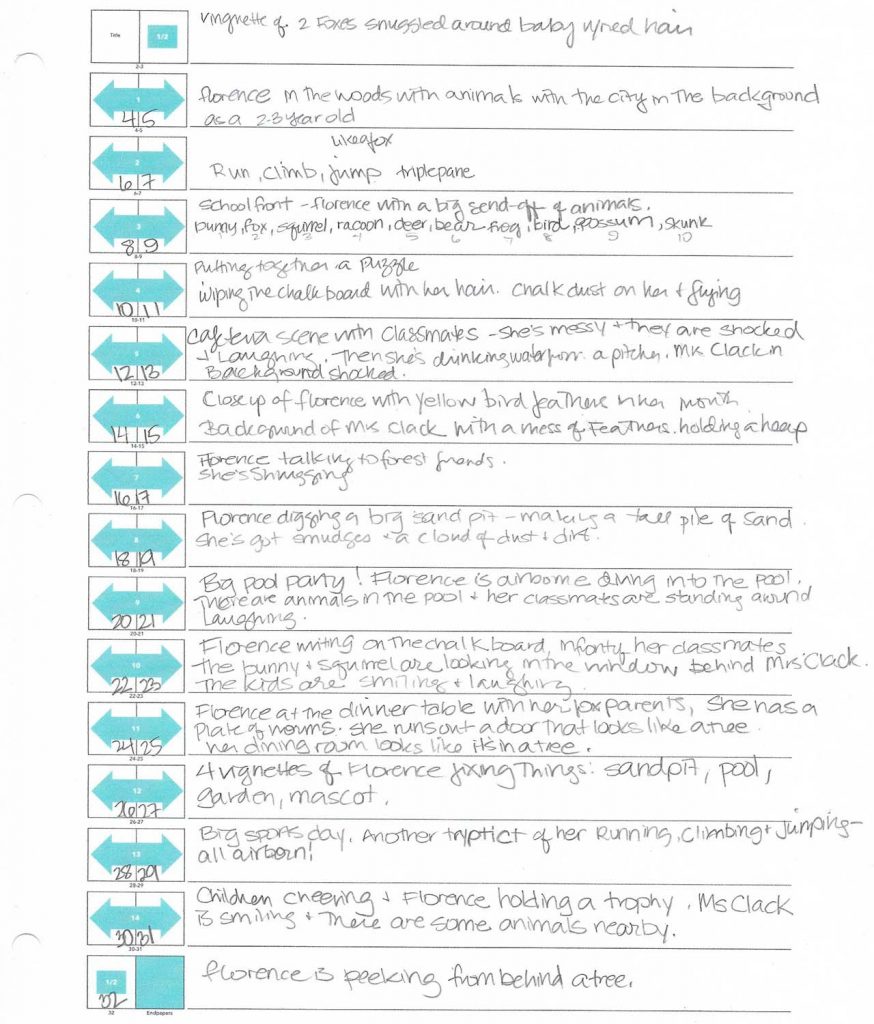
Thumbnails
The second step is to create thumbnail sketches of how the pages will be laid out with the text. These are quick scribbly images that capture the main idea of the page, the placement of the figures, and who or what will be on the page. Thumbnails are a quick and fun way to scribble out the story as it might appear on a page to page basis.
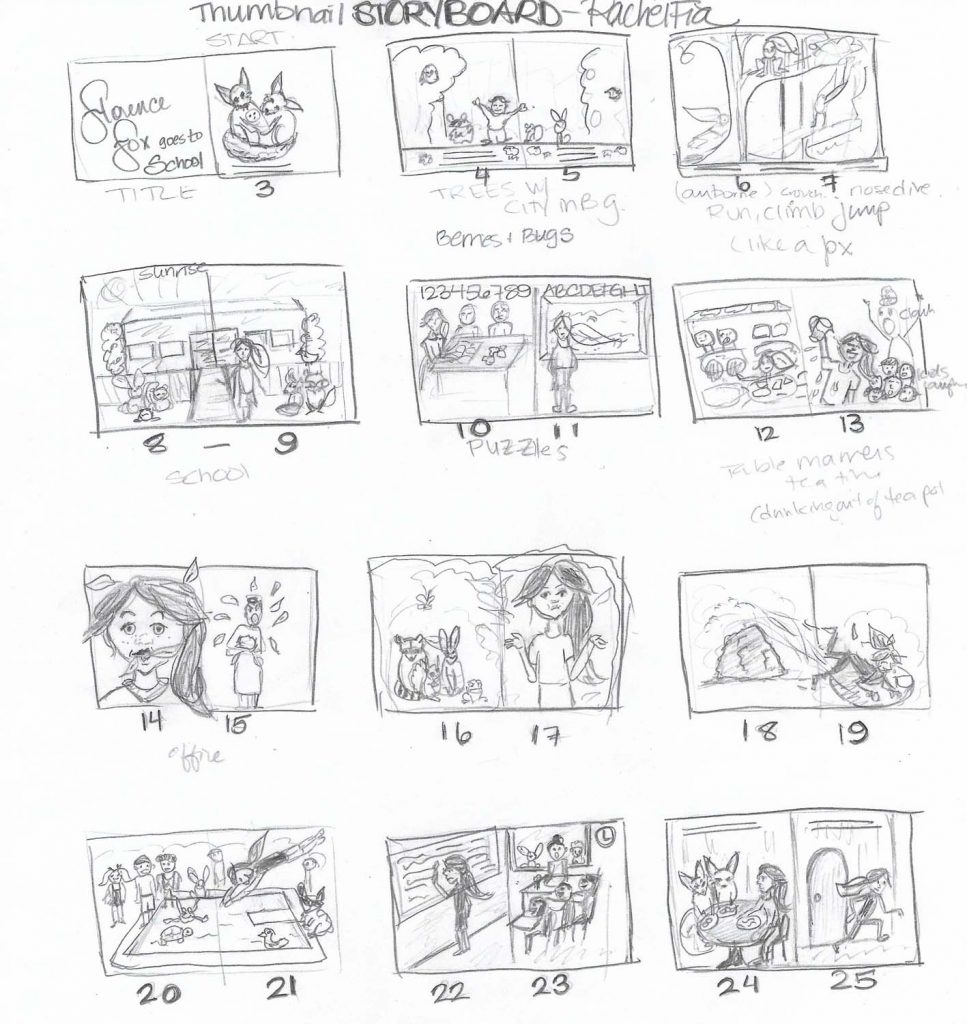
Read my next blog that covers Storyboarding.





